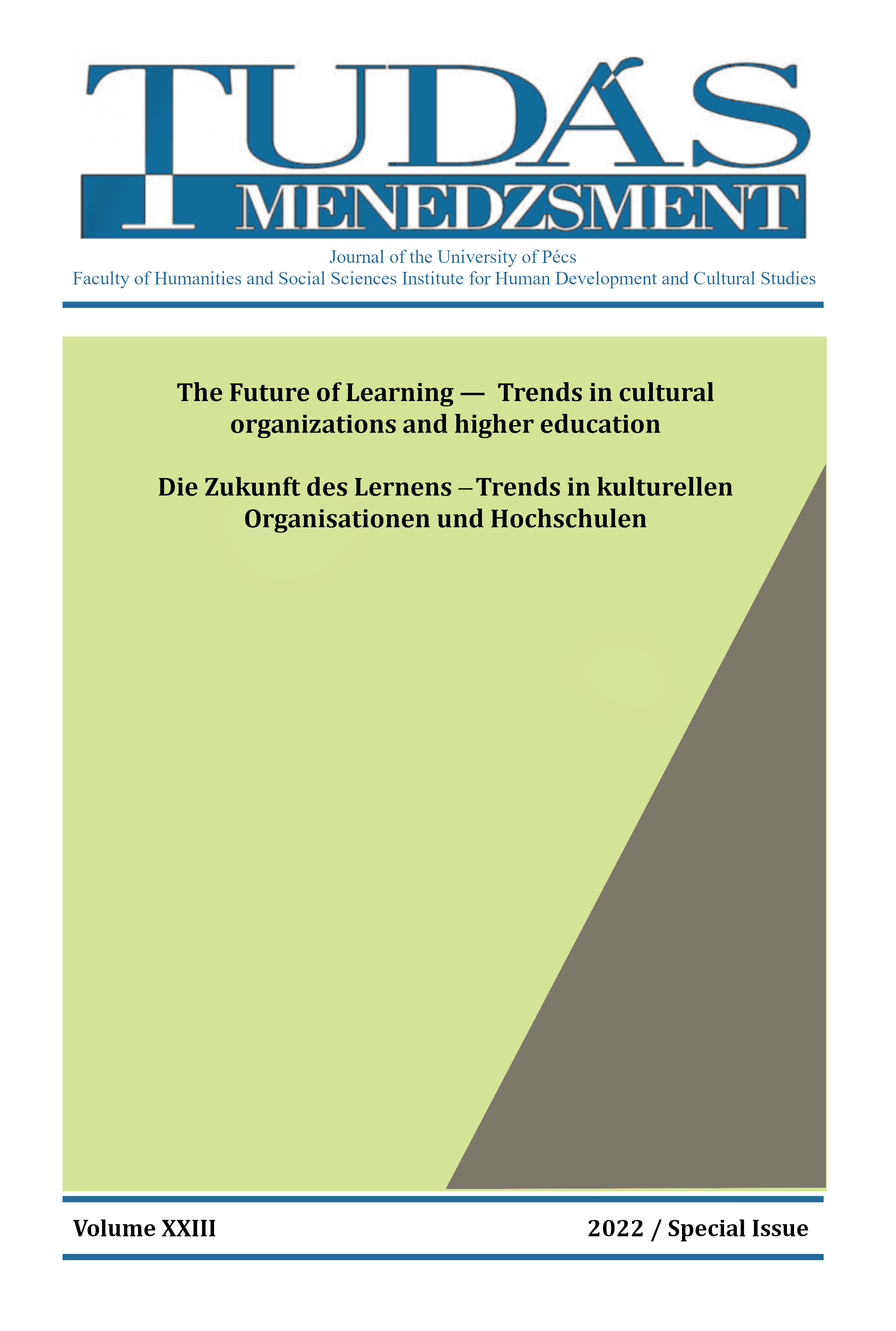Some results of an empirical study on the willingness of university citizens to transfer knowledge
DOI:
https://doi.org/10.15170/TM.2022.23.K1.8Absztrakt
In 2021, a survey was conducted to map the willingness to share knowledge of several students studying at Hungarian universities. The authors of the study wanted to examine how students rate knowledge sharing in the organisation where they study, how open they are to share their knowledge, what informal forms of knowledge sharing exist in the educational institution for academic and non-academic knowledge sharing, with whom they are willing to share their knowledge the most and furthermore what are the most important knowledge transfer problems in their institutions. The respondents filled in a questionnaire during seminars and on the social media platforms. 552 university students participated in the survey. The results show that knowledge sharing is a fundamental feature of the institutional strategy and active knowledge transfer is practised in schools since this is one of the primary tasks of universities, however, it is less common to encourage or reward knowledge sharing. In the study women rated their institution's knowledge management practices stronger than men. Furthermore, the results showed that in institutions where knowledge sharing is an important part of the strategy, there is active knowledge sharing and the more distant the relationship between a student and a student is, the less open they are to sharing information. According to the findings, the closer the relationship is, the more sharing tends to occur within the participants of knowledge transfer. As the issue of knowledge management and knowledge sharing is an inevitable question in corporations’ and universities’ everyday life, preserving, developing, and transferring knowledge is a primary requirement for the organisations.


